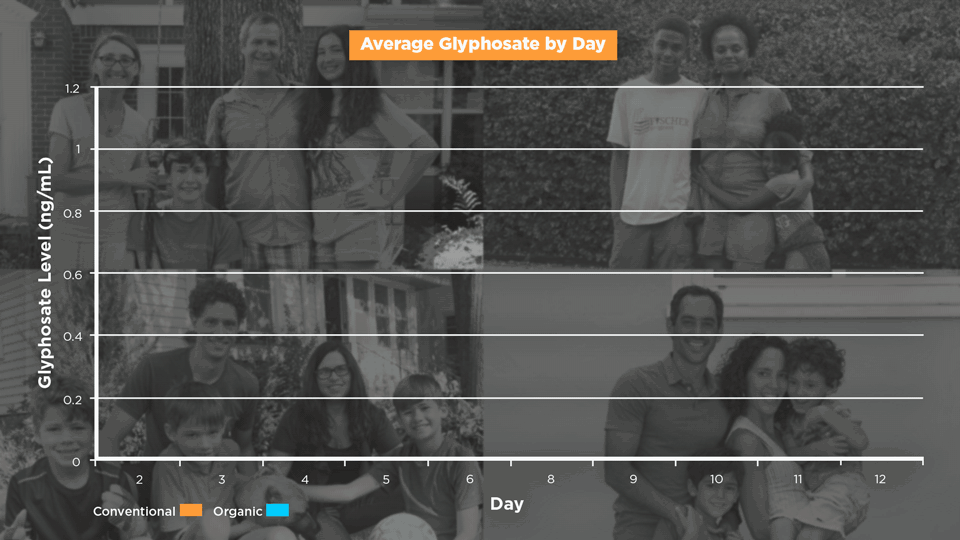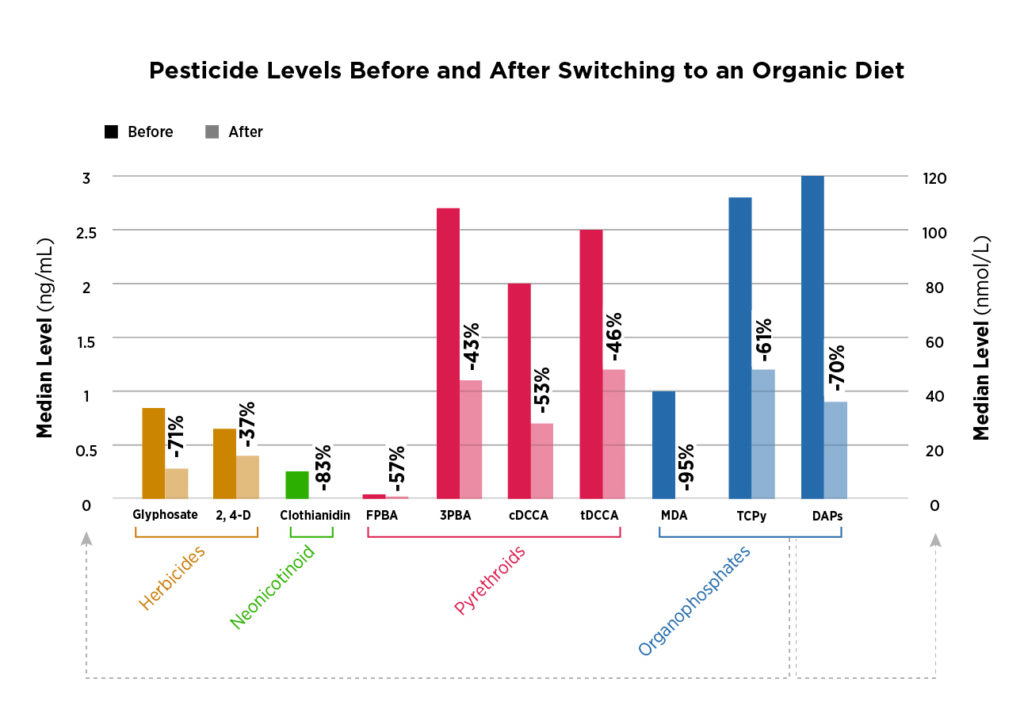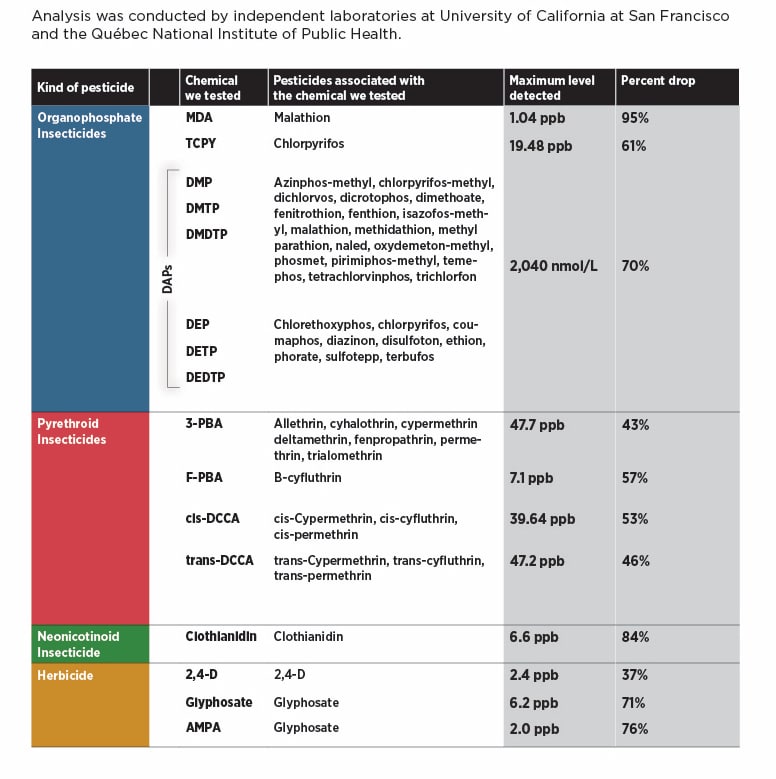The Study
Read the scientific paper on organophosphates, pyrethroids, neonicotinoids and 2,4-D.
Read the scientific paper on glyphosate.
Organic Works
All of us are exposed to a cocktail of toxic synthetic pesticides linked to a range of health impacts from our daily diets. Certified organic food is produced without these pesticides. But can eating organic really reduce levels of pesticides in our bodies?
In these peer-reviewed studies, we compared pesticide levels in the bodies of four American families for six days on a non-organic diet and six days on a completely organic diet. We found that eating organic works.
An organic diet rapidly and dramatically reduced exposure to pesticides in just one week. Levels of all detected chemicals dropped an average of 60.5 percent with a range of 37 percent to 95 percent depending on the compound.
New findings! Glyphosate (aka Roundup) drops 70% after six days on an organic diet
Top Four Pesticide Decreases in each Family
All detected pesticides dropped in each family, these charts show the top four decreases per family. These are glyphosate, pyrethroids (FPBA, 3PBA, cDCCA, tDCCA), a neonicotinoid (clothianidin), and organophosphates (MDA = malathion and in these charts OPs = organophosphate metabolites DMP + DMTP + DMDTP).
Pesticide Levels Before and After Switching to an Organic Diet
We found 16 pesticides and the chemicals that pesticides break down to in the body, called metabolites, in every study participant. Together, these represent potential exposure to 40 different pesticides, including glyphosate, organophosphates, pyrethroids, the neonicotinoid clothianidin and the phenoxy herbicide 2,4-D.
The most significant drops occurred in a class of neurotoxic pesticides called organophosphates. The metabolites for malathion (MDA) and chlorpyrifos (TCPy) decreased 95 and 61 percent respectively, and a set of six metabolites representing organophosphates as a class (DAPs) dropped 70 percent. These pesticides are so harmful to children’s developing brains that scientists have called for a full ban. Chlorpyrifos is a neurotoxic pesticide linked to increased rates of autism, learning disabilities and reduced IQ in children and is also one of the pesticides most often linked to farmworker poisonings.
The neonicotinoid pesticide clothianidin dropped by 83 percent. Neonicotinoids are among the most commonly detected pesticide residues in baby foods. They are associated with endocrine disruption and changes in behavior and attention, including an association with autism spectrum disorder., Neonicotinoids are also a main driver of massive pollinator and insect losses, leading scientist to warn of a ‘second silent spring’.
Levels of pyrethroids were halved. Exposure to this class of pesticides is associated with endocrine disruption, adverse neurodevelopmental, immunological and reproductive effects, increased risk of Parkinson’s and sperm DNA damage.
Glyphosate dropped by 71 percent, and its main metabolite, AMPA (aminomethyl phosphonic acid) dropped by 76 percent. Glyphosate is the main ingredient in Roundup, the most widely used pesticide in the world. Glyphosate is a probable human carcinogen. It has been linked to high rates of kidney disease in farming communities and to shortened pregnancy in a cohort of women in the Midwest. Animal studies and bioassays link glyphosate and its formulations to endocrine disruption, DNA damage, decreased sperm function, disruption of the gut microbiome, and fatty liver disease.
Finally, 2,4-D dropped by 37 percent. 2,4-D is one of two ingredients in the Vietnam War defoliant Agent Orange. It is among the top five most commonly used pesticides in the U.S. and is associated with endocrine disruption, thyroid disorders, increased risk of Parkinson’s and non-Hodgkin’s lymphoma, developmental and reproductive toxicity and damage to the liver, immune system and semen quality.
These results show that eating organic works. And in addition to reducing eaters’ exposure to toxic pesticides, organic farming systems protect the health of farmworkers, farmers, rural communities, our air, water and soil, and pollinators and other critical species.
We need a food system where organic is for all. No one should be exposed to toxic pesticides in the food they eat. No farmer or farmworker should have to sacrifice their health or their children’s health to grow the food we all eat. And the way we grow food should protect rather than harm the ecosystems that sustain all life.




